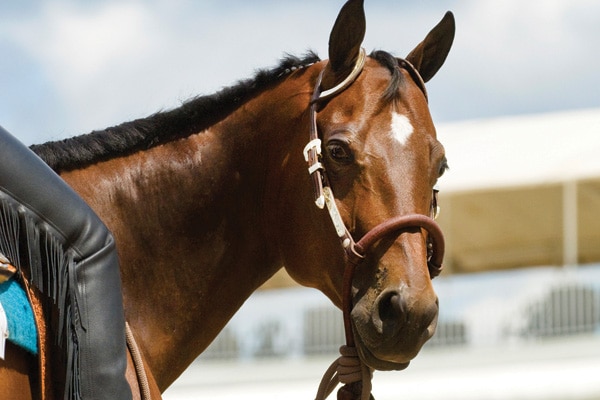Ask the Vet: Supplements for a Young Horse

I have an AQHA filly that just turned 2-years-old. Everyone is giving me their thoughts regarding horses ‘supplements.’ I thought that if she is receiving a good quality feed plus plenty of quality hay and pasture to graze upon, she would be fine. Now I am starting to wonder if I should be giving her something along the lines of supplements too. She hasn’t had any issues as her weight is stable between 800-900 lbs. Thoughts?
Melody
Dear Melody,
It sounds like you have some well-meaning friends who want the best for you and your filly. They’re probably concerned that the nutritional needs of a young, growing horse can be much different than the needs of a mature adult. In an earlier question this month, I pointed out that Coastal Bermuda pasture and hay alone–which are relatively low in protein–might not provide enough nutrition for a two-year-old. The sixth edition of Nutrient Requirements of Horses says an adult horse doing no work needs 540 grams of protein per day while a 24-month-old growing horse in no work needs 770 grams. Likewise an adult horse only needs about 20 grams of calcium per day while a young horse needs almost twice that much for normal, healthy bone growth.
You mention you’re feeding “good quality feed” as well as forage so you’re filly may be getting the protein, vitamins, minerals and other nutrients she needs at this stage of her life through this combination of feedstuffs. I suggest reading the label on the grain bag carefully to make sure you’re feeding the recommended amount for her age and size and if not, consider adding a multi-vitamin/mineral supplement or ration balancer to make up the difference.
As your filly grows up and you begin to train and compete her, consider whether she has any specific problems that a supplement might be able to solve. For example, are you involved in a rigorous discipline like reining or jumping that might create wear and tear on her joints? Or could her coat be shinier so she stands out in the halter ring? Does she have brittle hooves that chip easily or don’t hold a shoe well? Maybe she needs electrolytes to encourage her to drink more water? Once I’m certain a horse’s basic nutritional needs are met, then I address any individual issues especially as they relate to her particular sport.
[Ed. note: from the AAEP Ask a Vet]